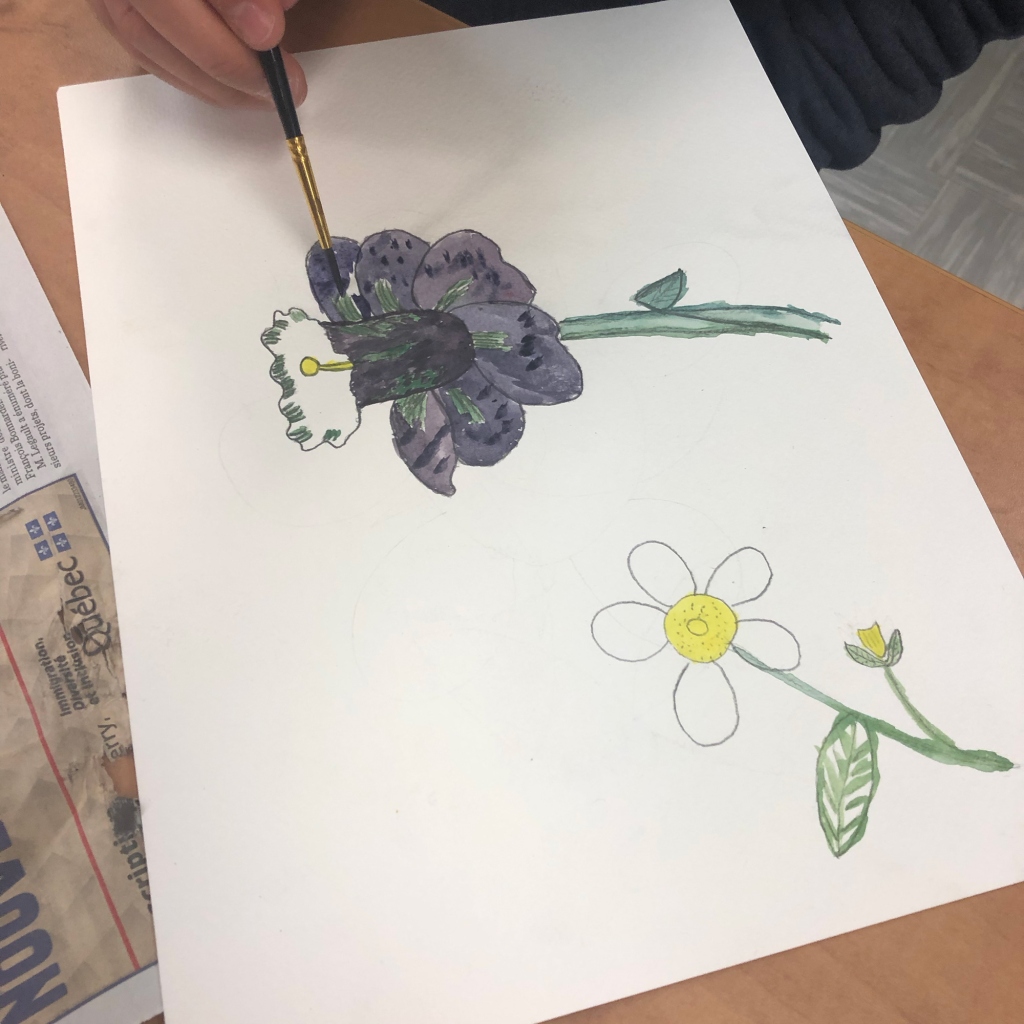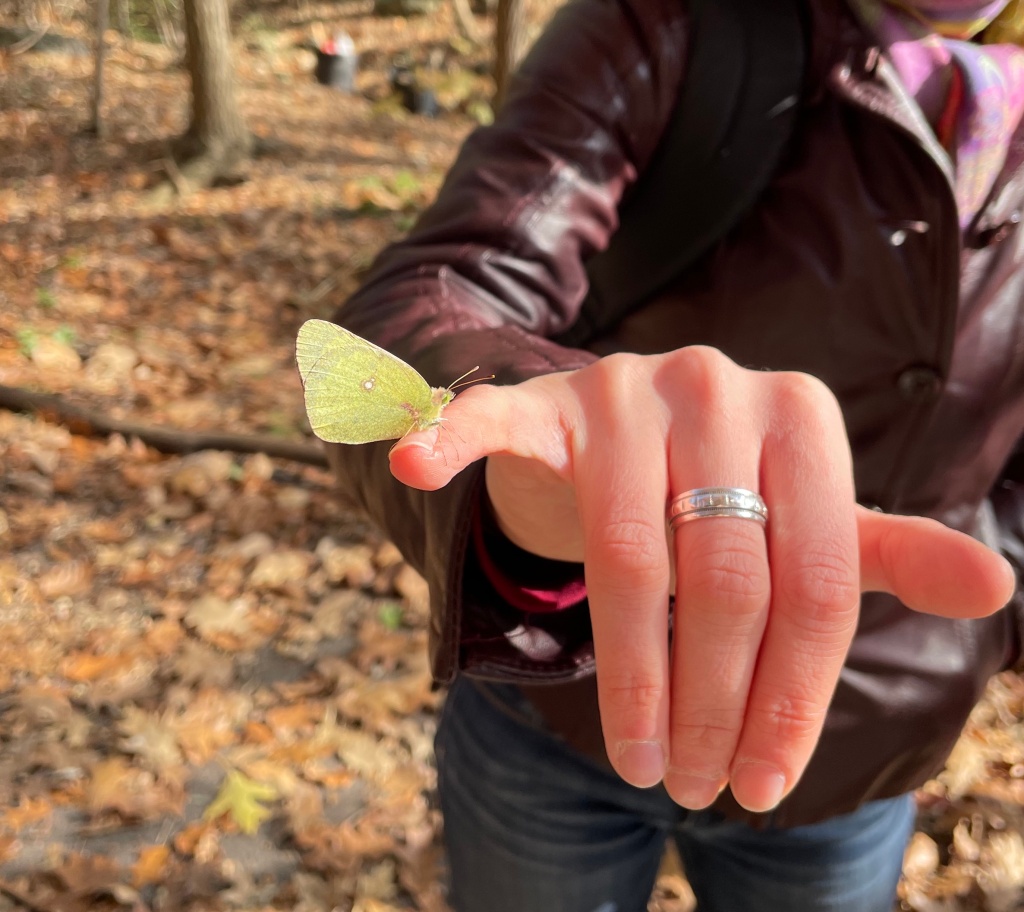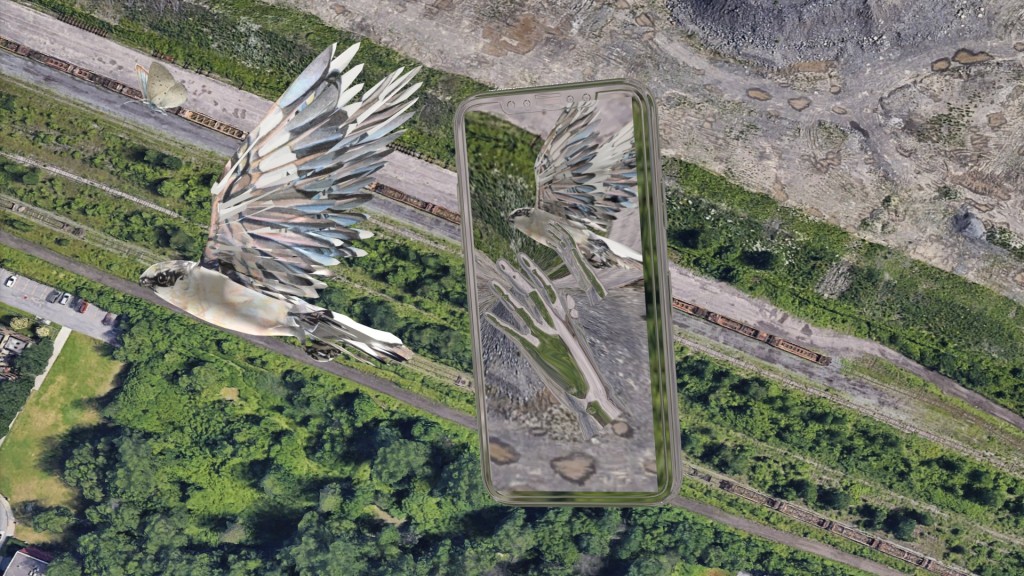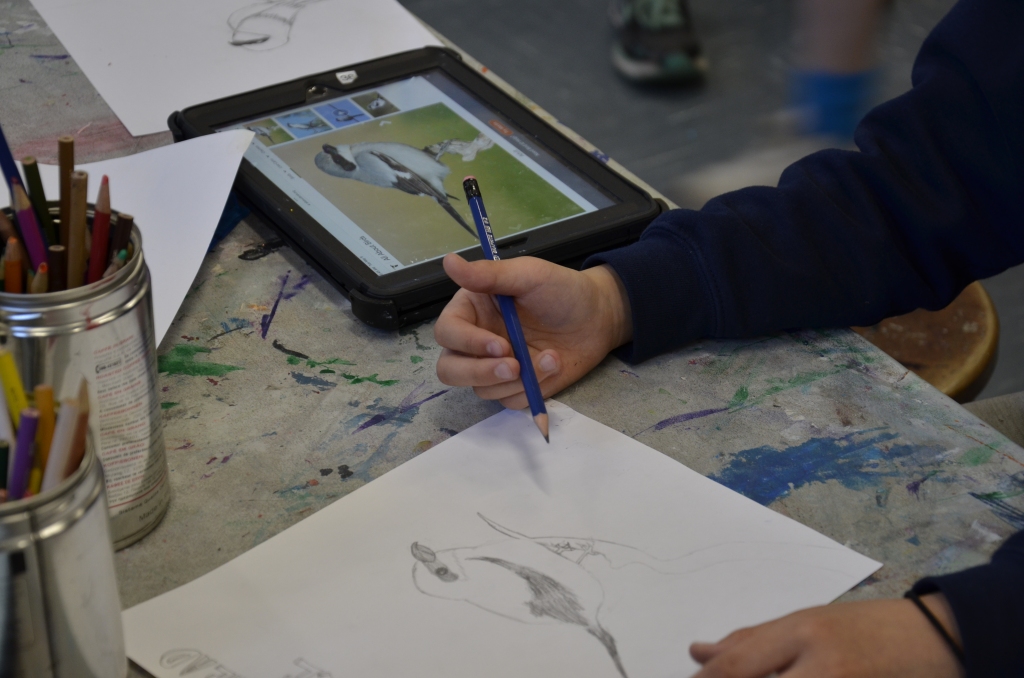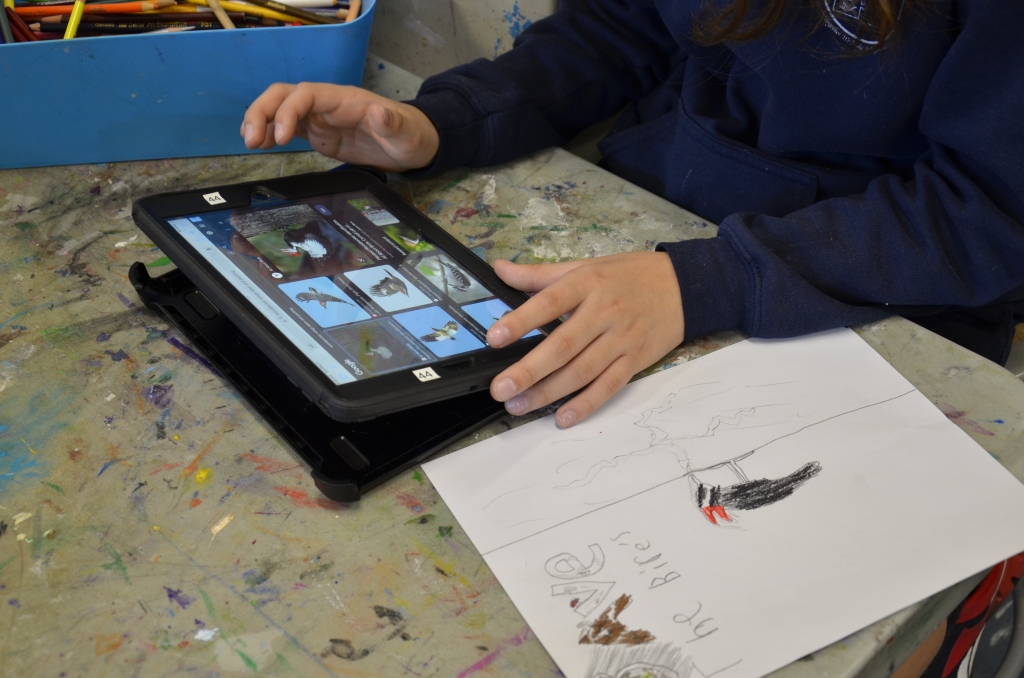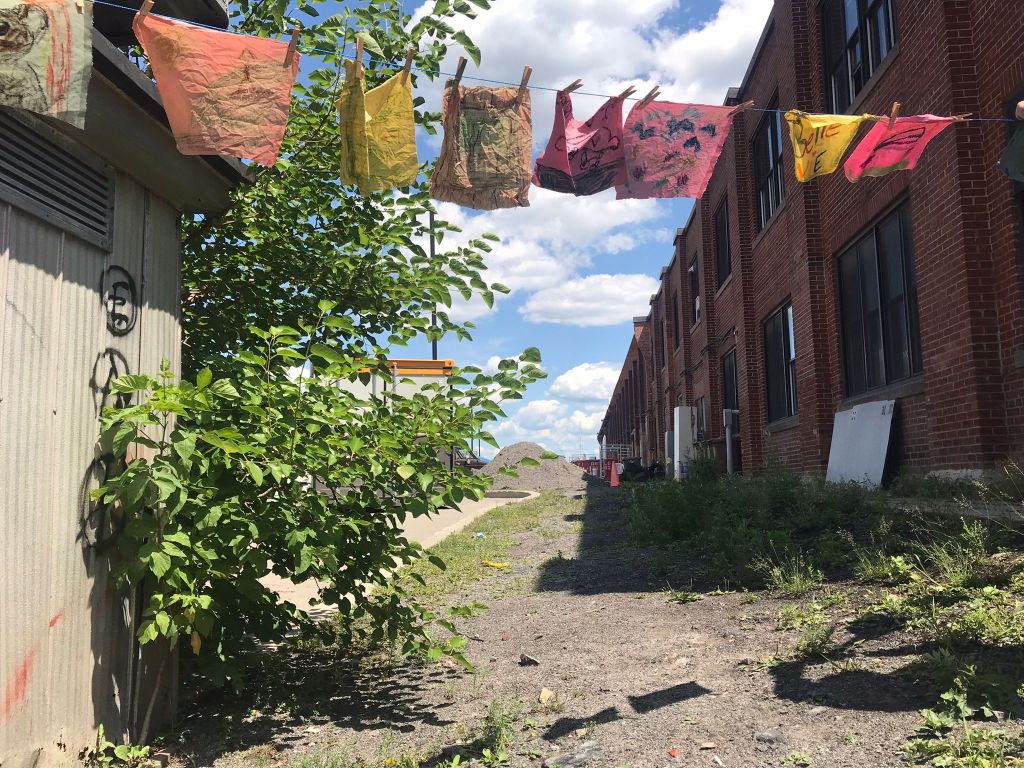If you were this plant, what would your day be like?
In the eddies of an educational system subsumed by capitalist necessity, students at an Adult Education Centre in Laval, Canada, are set apart from the unidirectional and hegemonic thrust of graduating highschool by diverse challenges. They share a goal of completing their education as fast as possible. Without much room for divergent learning styles, aptitudes, or backgrounds, our high school system demands conformity while geographies and architectures in learning institutions and their surroundings tend to echo this linear thinking, isolating individuals from each other and within themselves and their histories.
In the workshop we gave at the learning centre, our hope was to incorporate a mandatory artistic activity into the school day, where students would go to the unattended powerline field behind their school that most consider a waste space, choose a plant they felt drawn to, render it in watercolour through observational painting, and then write a diaristic passage from the perspective of the plant itself.
Working within an institutional system, we attempted to incorporate so-called leisurely activity into the requisite coursework, offering a time to reflect on broader relationships between self and world. Like the communities of diverse wildlife that thrive where patriarchy and structures of domination have cast a blind eye, sustained intra- and interpersonal connections among students develop where lateral and unpragmatic thinking are given space through leisure. Healthy living communities- such as a classroom of students with diverse backgrounds engaged in meaningful leisure time, or a field left to grow wild and uncontrolled by human interventions- necessitate respect and appreciation of difference, interaction and exchange, and self-determination. In our paper we discuss how a barely existing community ethic was strengthened by a botanical art and poetry workshop, and make a case for freedom within an education of care.
We propose that an education of care, as well as the individual practices of both care and education, require what Bernard Stiegler calls long or deep circuits of transindividuation, or intergenerational links which provide meaning contexts (Stiegler 2010). While educators find daily, wide-spread evidence for technocapitalisms’s short-circuiting of long chains of memory and social meaning, for example in student’s attitude of apathy or boredom, we also find that shifting attention and focus towards always immanent intersubjective awareness and belonging reinstate desire (rather than drive) as well as responsibility.
Keywords
Adult education, empathy, intersubjectivity, attention, Stiegler, neganthropy, anthropocene, Hayles, Haraway, Tsing, forest schools, poetry



